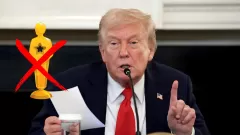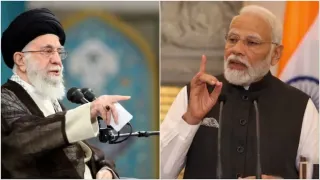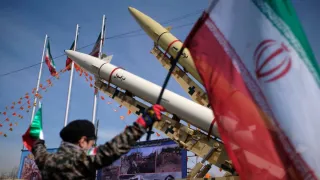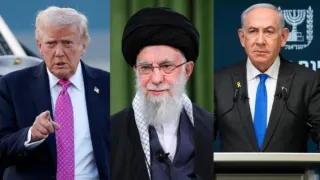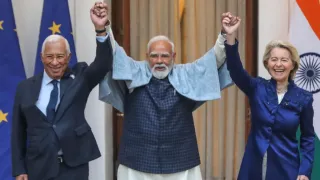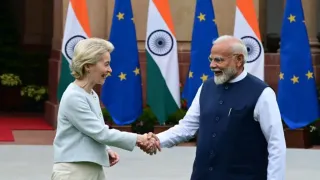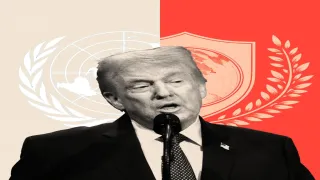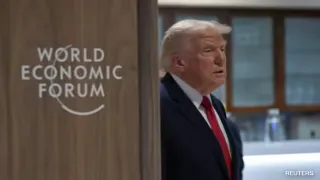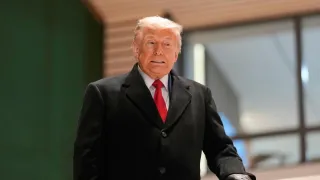US Election Results: How Will a Trump Win Affect India?
As election results solidify, Donald Trump appears poised to become the 47th President of the United States, marking a potential shift in global policy and economics. Trump's return to the White House could carry significant implications for India across various sectors, including trade, immigration, defense, and energy. In this article, we analyze the potential impact of Trump’s presidency on India, looking at expert opinions and past trends to outline the anticipated effects on India's economy and geopolitical stance.
Impact on Trade and Economy
Potential Shifts in Manufacturing and Trade Relations
Donald Trump's promise to impose new tariffs on China could open doors for India to play a more prominent role in the global supply chain. By raising trade barriers against Chinese goods, the US might encourage businesses to seek alternative manufacturing hubs. India, with its growing industrial base and workforce, could stand to benefit as companies reconsider their reliance on China.
However, Adrian Mowat, a seasoned investor, cautions that while India may gain from these tariffs, Trump might also impose similar restrictions on US companies outsourcing to countries like India. This could impact American businesses that rely on Indian IT services and potentially lead to reduced demand for Indian exports.
Effects on Indian IT Sector and H-1B Visa Policies
During his first term, Trump implemented stricter regulations on H-1B visas, which had a profound impact on India’s IT sector. Major Indian companies like Infosys, TCS, and Wipro faced a 50-80% reduction in H-1B visa approvals. These restrictions led to a decrease in the number of Indian professionals in the US tech industry, hampering the growth of Indian IT exports to the United States.
Impact on Emerging Markets and Stock Market Sentiments
Experts like Ed Yardeni, President of Yardeni Research, predict that a Trump victory could lead to a stronger US dollar, which could negatively affect emerging markets like India. A rising dollar generally makes imports more expensive for countries with weaker currencies.
Market Expert Insights on Indian Equities
Despite the potential challenges, market analysts like Manpreet Gill, Chief Investment Officer for Standard Chartered Wealth Management, have expressed optimism for Indian equities in the long term. While Trump’s tariff policies could disrupt short-term trade, the structural growth potential in India remains strong. Citi’s Drew Pettit also suggests that US investors may continue to show interest in Indian equities as part of a diversified investment strategy.
Sectoral Analysis of Trump’s Potential Impact on India
Energy and Environment
A Trump-led government is likely to focus on deregulation in the energy sector, leading to lower global oil and gas prices. For an import-dependent country like India, this could result in reduced energy costs, easing inflationary pressures and contributing to economic stability.
Defense and Strategic Relations
Trump's administration had previously committed to strengthening the Quadrilateral Security Dialogue (QUAD), an alliance between the US, India, Japan, and Australia aimed at maintaining stability in the Indo-Pacific region.
Healthcare and Pharmaceutical Industry
The pharmaceutical sector could also benefit from Trump’s focus on deregulation. Indian pharmaceutical companies, which produce a significant portion of the world’s generic drugs, may find it easier to penetrate the US market.
Trade and Immigration Policies: A Double-Edged Sword
Trade Tariffs and Opportunities
While Trump’s tariff policies on China could indirectly benefit Indian exports, they may also pose new challenges if he introduces similar restrictions on countries where the US has a trade deficit, including India.
Implications for Immigration and Indian Workforce
Trump's immigration policies have historically been a point of contention. During his previous tenure, his administration introduced stricter rules for H-1B and L-1 visas, which are commonly used by Indian tech professionals.
Outlook on India-US Relations Under Trump
Long-Term Prospects for Bilateral Relations
Despite potential policy changes, the US-India relationship has maintained a solid foundation over the years. Strategic cooperation in defense, healthcare, and technology is likely to continue under Trump, supported by shared interests in maintaining stability in the Indo-Pacific.
The Role of the Indian-American Community
The Indian-American community has grown to become a significant demographic in the US, influencing sectors such as education, healthcare, and technology.
Conclusion: A Balancing Act for India Amid Trump’s Return
India’s relationship with the US is poised to experience both opportunities and challenges with Trump’s return to the White House. While Trump’s policies may open up avenues in manufacturing, defense, and pharmaceuticals, his stance on trade and immigration could present hurdles for Indian industries and professionals.








